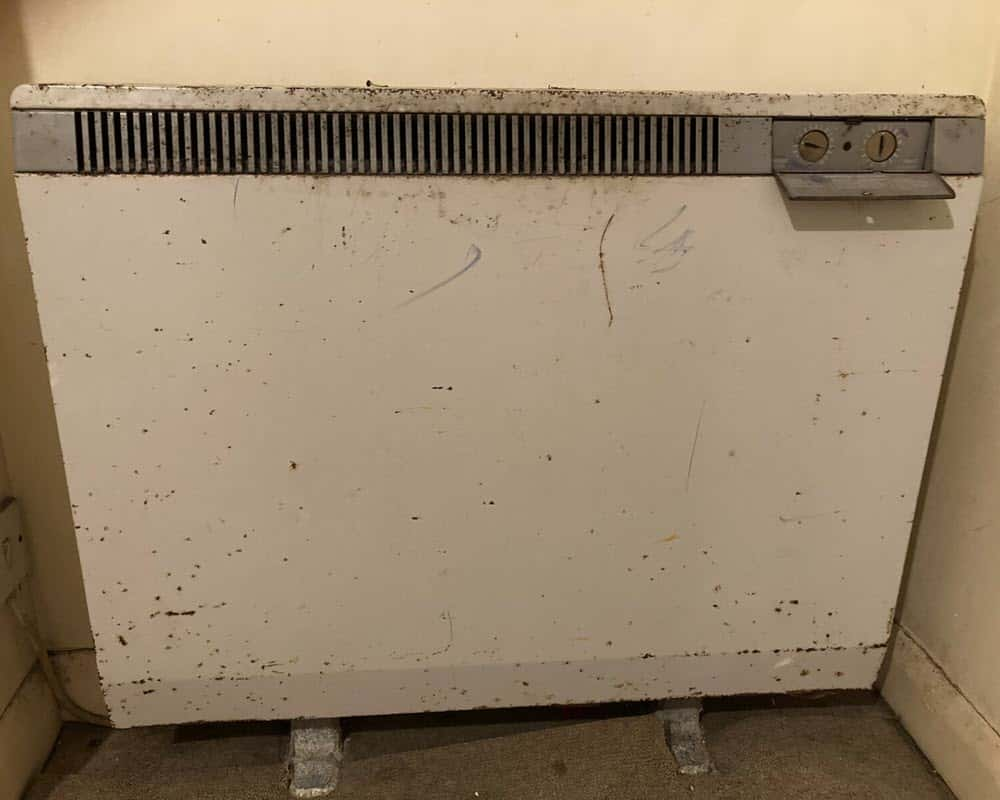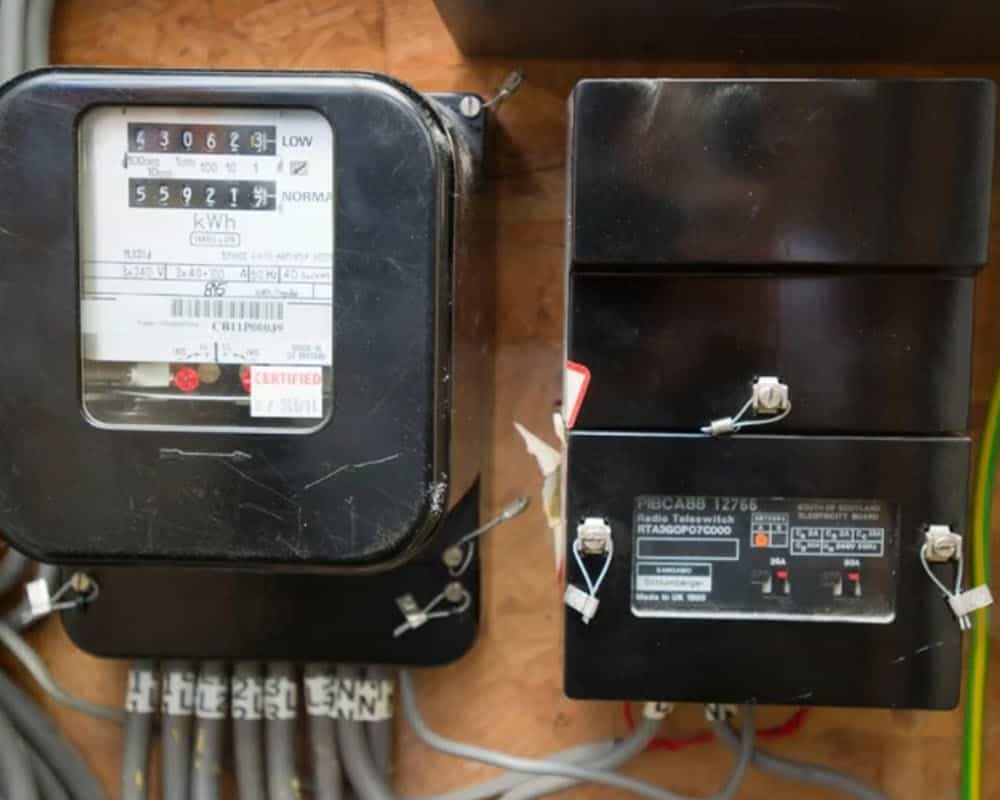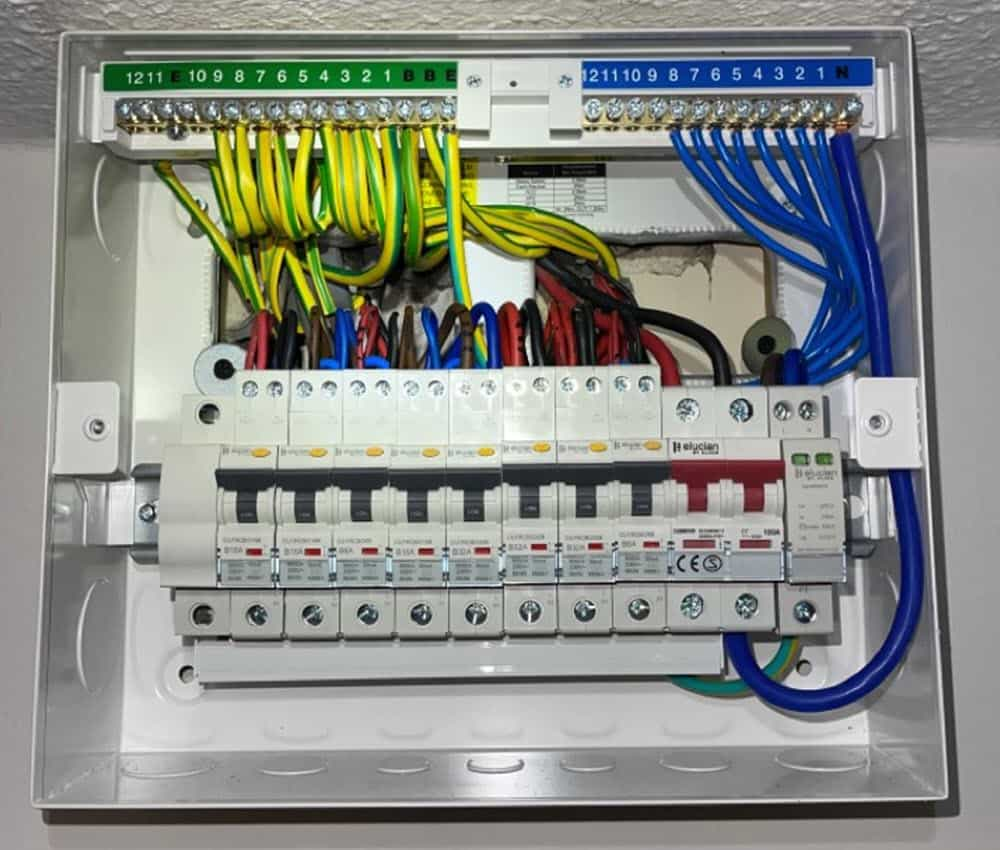As of 30th June 2025, the technology that supports radio teleswitch service (RTS) electricity meters will be phased out across the UK. If your property uses an RTS meter, this upcoming change could have a significant impact on how your heating system operates and the amount you pay for electricity.
Homes using electric or storage heaters and off-peak water could be affected, as RTS meters currently help manage electricity consumption during off-peak periods, such as Economy 7 or Economy 10 tariffs. If you do not upgrade your meter in time, you could experience higher energy costs, inefficient heating, or even find your heating is constantly on, without the ability to switch off at the right times.

This is important news for those with storage heating and hot water tanks
RTS meters were commonly installed in homes that relied on electric heating, and were designed to manage electricity usage by switching between peak and off-peak times. This ensured that you used electricity when it was cheapest, usually in the night-time or early morning hours. If you currently have an RTS meter, your electric heating system may rely on it to operate efficiently.
In many homes with electric storage heaters, the heaters charge up during the off-peak periods and release heat throughout the day. The RTS meter works alongside this system, switching the power supply on and off during these periods.
The imminent switch-off of RTS technology means that these RTS meters will no longer function, leaving your heating system potentially running inefficiently or at the wrong times. This will result in increased costs, wasted energy, and a lack of control over when your heating comes on or off.
How do I know if I have an RTS meter?
If you’re unsure whether your property uses an RTS meter, there are a few clear signs to look out for:
- Electric heating: If your property uses electric or storage heaters to provide heating.
- Switch box with RTS label: You may have a separate switch box near your meter, labelled with ‘Radio Teleswitch’.
- No gas supply: Homes in rural areas or high-rise flats without a gas central heating and without connection often use electric heating and may have RTS meters.
- Cheaper electricity tariffs: If you are currently benefiting from cheaper electricity rates during off-peak periods (such as on an Economy 7, Economy 10, or Total Heat Total Control tariff), this is a strong indicator that your property is using an RTS meter.

The benefits of switching to a smart meter …
Smart meters are the modern and reliable replacement to outdated RTS meters. The smart meter will perform a similar role to an RTS meter, by switching between peak and off-peak times, but with added functionality and benefits that can help make your energy use more efficient and cost-effective.
One of the well-known advantages of smart meters is that they provide real-time data about your electricity consumption. This means you can track exactly how much electricity you’re using and when, allowing you to better understand your energy habits and identify potential savings.
Other benefits include:
- If you’re considering switching to an electric vehicle (EV), you’ll need an EV charger installation, which requires a smart meter.
- The same applies to solar panel installs and battery storage installations, each of these renewable energy solutions benefits from the efficiency and functionality that a smart meter provides, ensuring you get the cheapest rate of electricity.
- Smart meters also provide automatic meter readings, so there’s no need for manual readings or estimated bills – which ensures you’re only paying for what you actually use. This is really useful and helps airbnb hosts, landlords and HMO properties to keep an eye on their spend.
Additionally, with a smart meter, you’ll have access to a wider range of ‘time-of-use tariffs’. These tariffs allow you to choose the most cost-effective pricing structure based on your usage patterns. For example, if you use more energy during off-peak hours, you may be able to save money by selecting a tariff that aligns with this behaviour.

What you need to know about upgrading from RTS
Upgrading your system may involve more than just replacing your meter. In some cases, it may be necessary to upgrade your fuse board or rewire circuits to accommodate the new smart meter and ensure your electric heating system works effectively with the upgraded technology.
These changes might be necessary to ensure that your home is ready for the new way of managing electricity consumption and to support new smart heating controls.
For instance, some older systems that rely on off-peak tariffs may require new control systems to ensure the heating comes on only during the off-peak periods. These new smart controls can be integrated with your heating system to offer greater flexibility, such as adjusting the heating schedule remotely or through an app.
This gives you more control over when your heating comes on and ensures you’re only using electricity when it’s most economical.
What could happen if you don’t upgrade your RTS meter?
If you decide not to upgrade your RTS meter before the switch-off, there are several potential consequences. Without an operational meter, your electric heating system may either run continuously or fail to operate at the correct times, leading to increased energy bills.
Without the ability to accurately track your peak and off-peak electricity usage, you’ll be unable to take advantage of the cheaper off-peak tariffs that are available with the smart meters.
In addition, your heating could be activated at the wrong times, charging during peak hours when electricity is more expensive, and leaving you with higher bills as a result. Furthermore, you might experience complete failure of your heating and hot water systems, as the RTS meters will no longer be able to regulate electricity usage as required.
Can tenants upgrade their RTS meters?
If you are renting, it’s still possible to upgrade your meter. If the energy bill is in your name, you have the right to request a smart meter installation. However, it’s always best to get permission from your landlord or letting agent before proceeding with the installation.
Your next steps …
The switch-off of RTS meters presents a perfect opportunity to upgrade your home’s heating system and improve energy efficiency. A new smart meter, combined with the latest electric heating technology like Quantum Heaters, can greatly reduce your energy usage and costs, while providing better control over your home’s temperature, see our recent Dimplex Quantum review.
We can help you transition to new smart technology, ensuring that your electric heating system continues to run smoothly and efficiently. Whether you need a fuse board upgrade, rewiring, or new smart heating controls, we are here to provide expert advice and installation services tailored to your needs.
More info about the RTS switch-off and how it could affect your heating system can be found on the Ofgem website .
If you have any questions about this article, please feel free to leave a comment below. If you are unsure whether you have a RTS meter, email a picture of your meter to info@ies-edinburgh.co.uk and we will be happy to tell you.


Have dimplex storage heaters QM150 RF…. On reading your article on the switch off the RTS….does that mean that the storage heaters will have a clock mechanism for the dual supply…or will the R TS meter to be changed for the newer 5 port dual rate meter.
Many thanks
Colin
Hi Peter,
Thanks for reaching out!
The switch-off of the RTS meter refers to the transition towards using more advanced metering systems. If you have Dimplex storage heaters (QM150 RF), the current RTS meter will likely need to be replaced with a newer, 5-port dual-rate meter, which can handle both the off-peak and peak rates for your electricity supply. This will ensure your storage heaters continue to work with the correct rates for charging during off-peak hours.
The new 5-port meter should also provide better functionality, but you will need to add some sort of timer to your heaters and if you have any off peak water heaters installed in the property.
If you’re unsure, we’d recommend checking with your energy provider to confirm the specifics of the switch-over.
Feel free to ask if you have any more questions or if you’re close to Edinburgh we would happily take a look for you.
Mark